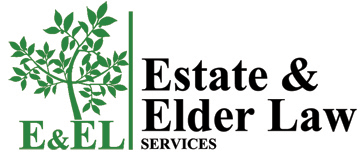October 2020 Newsletter
Wednesday, October 14th, 2020

|
From The Certified Elder Law
Attorney's Desk:
William W. “Bill” Erhart
|
|
WILLS OR TRUSTS:
WHAT ARE THE ADVANTAGES?
In essence, Wills do nothing while the Will maker is alive. Trusts function as both substitutes for powers of attorney and for wills.
The anecdotal and documented evidence that powers of attorney are scrutinized and challenged frequently by banks and financial institutions is well known. See, New York Times, May 6, 2016. Finding Out Your Power of Attorney is Powerless; Also, David J. Feder and Robert H. Sitkoff, Revocable Trusts and Incapacity Planning: More than Just a Will Substitute, 24 Elder L.J.1 (2016). The traditional estate planning uses of the irrevocable trust as a management tool for passing wealth down the generations and the revocable trust for probate avoidance or as a will substitute, are enhanced by the use as a trust as a substitute for the power of attorney and as a guardianship substitute when planning for incapacity.
Typically, whether to use a will or a revocable trust as the primary estate planning instrument is based on the value of one’s gross estate and the type of assets owned. Where the individual lives determines whether probate may be inconsequential or onerous and is a consideration. In Delaware, simply calculating the cost of probate may justify the use of a revocable trust. Currently, the probate fee is 1.75% of the net probate estate. If one has $1 million of personal property passing through probate which will incur a probate fee of $17,500 and the cost of drafting a revocable trust estate plan is between $5000 and $10,000, then the decision to use a revocable trust is usually clear. Pursuant to 12 Del. C. § 2102 the claim period for claims against an estate is eight months for debts of the decedent and six months for the debts of the estate. Likewise, if real estate is held in an individual decedent’s name and is sold during the claims period, funds must be held in escrow and cannot be distributed to the beneficiaries until the claim period has lapsed. Real estate held in trust and sold postmortem typically accelerates the time for distribution. But see, 12 Del. C. § 3337 (claims barred against revocable trust immediately prior to the trustor’s death barred to the same extent as against the estate by any applicable statute of limitations or repose.)
Naturally, there are many ways to avoid probate, jointly held assets, transfer or pay on death accounts, beneficiary designations, but trusts, whether created while the trust maker is alive or testamentary (through a will) provide asset protection for beneficiaries. Frequently we have beneficiary designations or pay on death/transfer on death accounts paid into testamentary trusts simply to provide asset protection for the appropriate beneficiaries.
Many benefit by having assets left in trust as opposed to outright for those beneficiaries receiving or who may receive public benefits, such as Medicaid or Supplemental Security Income. Or those beneficiaries with a substance or emotional problem, high-risk professions or circumstances, a history or likelihood of poor personal relationships, bad marriages, poor financial skills, or a substantial amount of property is being left to the beneficiary.
Wills become public at death. Trusts are private and prevent the public airing of family issues, such as disinheritance, funds left in trust, unequal distributions, gifts to charities where the grantor/decedent wishes to remain anonymous, and other possible quirks.
With a revocable trust, there is always a will, in case the client intentionally or accidentally omits titling an asset into the trust. This is known as a pour-over will as it pours over the neglected asset into the trust bucket. This creates what is known as a testamentary trust and does not avoid probate.
Even simple wills generally create testamentary trusts for minor children. As a matter of good practice, wills should create contingent testamentary supplemental needs trust in case a beneficiary is receiving public benefits at the time of the decedent’s death.
In Medicaid planning, we often recommend wills instead of revocable trusts in certain circumstances, such as where one spouse seems likely to die shortly. Pursuant to 42 U.S.C. § 1396p (d) an asset protection trust can be created for a surviving spouse which corpus is exempt from being considered available under the Medicaid rules.
Wills or trusts are a matter of personal choice. Sometimes it makes sense to have a will just because of the additional cost and complexity. One positive thing a will does is appoint a personal representative to handle the estate. Wills are appropriate when there is no solely held real estate and no significant asset that will pass through probate, if solely held assets are under in value have been disposed of by beneficiary designation or personal property very little fair market value.
|
